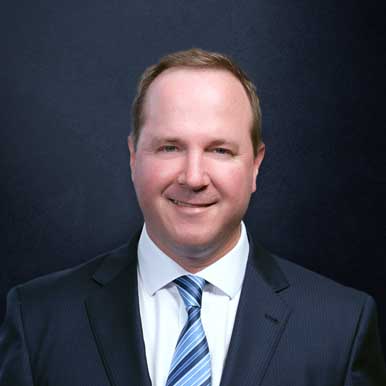Whitewater West Industries, Ltd. v. Alleshouse: California Law Torpedoes Post-Employment Invention Assignment Provisions
March 11, 2021 | Employment Articles

California employers beware. You can use a properly drafted contract to prohibit former employees from using your confidential information after they leave your business. But, if your contract requires a former employee to hand over to you his or her good ideas related to your business conceived after leaving your company and without using company information, that may be asking for trouble under California Business & Professions Code § 16600. In Whitewater West Industries, Ltd. v. Alleshouse, the Federal Circuit invalidated such a provision as an unlawful restraint of trade.
Background
Richard Alleshouse, the employee-defendant, was an engineer for a company that designed technology giving users the experience of surfing on artificially generated waves. After working for the company for five years, Alleshouse left to start his own business in the same industry. He successfully filed for several surfing technology-related patents.
Alleshouse’s at-issue employment agreement included a very broad post-employment invention assignment provision. The provision assigned to the employer ownership of any of the employee’s inventions, even those “related to” the former employer’s business derived without reference to the former employer’s confidential information (the “Provision”).[i] After Alleshouse filed for the patents, Whitewater, the successor to Alleshouse’s former employer, sued Alleshouse for ownership of the patents, relying in part on the invention assignment provision.
The Federal Circuit analyzed a novel issue under California law: whether an employment agreement can “require assignment of inventions conceived post-employment and without use of the former employer’s confidential information.”[ii]
While there is no California precedent directly on point, the Federal Circuit reasoned that under California courts’ strict interpretation of § 16600 such provisions were invalid as unlawful restraints of trade. The court held also that California Labor Code § 2870, which invalidates certain invention assignment provisions, does not cover post-employment invention assignment provisions. Thus, the exceptions to invalidation in § 2870 would not save the Provision, which was otherwise invalid under § 16600.
Section 16600
Section 16600 states that “every contract by which anyone is restrained from engaging in a lawful profession, trade, or business of any kind is to that extent void.”[iii] Interpreting the California Supreme Court’s 2008 decision in Edwards v. Arthur Andersen LLP,[iv] the Federal Circuit emphasized the breadth of § 16600, noting that the California Supreme Court had taken a “strict” approach to interpreting the statute where contracts restrained former employees.[v]
The Federal Circuit held that the Provision was invalid because it had “a broad restraining effect.”[vi] The agreement assigned rights to an invention to Alleshouse’s former employer “if the invention is either ‘resulting from or suggested by’ his ‘work for’ [the employer] or ‘in any way connected to any subject matter within the existing or contemplated business of’ the employer.”[vii] The Provision covered inventions not derived from employer confidential information, and the obligation was “unlimited in time and geography.”[viii]
The court found that the effect of the Provision was to deprive the employee and his future employers of “the likely competitive benefits of the exclusivity rights provided by patents on such new inventions.”[ix] And, without these competitive benefits, Alleshouse would struggle to find prospects in his industry.
Section 2870
Section 2870 prohibits the assignment of inventions to an employer “that the employee developed entirely on his or her own time without using the employer’s equipment, supplies, facilities, or trade secret information.” But the statute lists two broad exceptions to this prohibition, including for inventions that relate to the employer’s business at the time of conception.
Whitewater argued that Alleshouse’s patents relating to artificial wave surfing fell under this exception to the prohibition because the patents “related to” the business of his employer and, as such, the “related to” exception validated the Provision even if § 16600 prohibited it.
The Federal Circuit disagreed, holding that § 2870 did not apply at all on these facts because the prohibition in § 2870 does not cover post-employment assignment provisions. The statute only contemplated assignment clauses relating to inventions conceived by the employee while employed. Since the exceptions to a prohibition cannot be broader than the prohibition itself, the exception to the prohibition in § 2870 would not save this assignment clause.
Takeaways
- California employers should take care in drafting provisions within employment-related contracts that arguably restrain a former employee’s ability to obtain new employment through lawful means.
- Employers should also routinely identify and protect company trade secret information and ensure that all such information is returned by departing employees.
- For employees whose jobs involve working with or creating valuable proprietary information, consider taking enhanced measures to ensure that all company trade secret information has been returned.
- Unlike some states, California has not adopted the “inevitable disclosure” doctrine. So, without more, the fact that a former employee will be joining a competitor and doing work very similar to that which she performed for the former employer is not unlawful.
[i] Whitewater West Industries, Ltd. v. Alleshouse (Fed. Cir., Nov. 19, 2020, No. 2019-1852) 2020 WL 6788760, at *2 (“Whitewater”) (emphasis added).
[ii] Id. at 5 (emphasis added). Aiding the court in narrowing down this issue, the parties stipulated to two facts on appeal: first, that the inventions were not conceived until after Alleshouse left his former employer and, second, that Alleshouse did not use any confidential information from his former employer in conceiving of this invention.
[iii] Bus. & Prof. Code, § 16600.
[iv] Edwards v. Arthur Andersen LLP, 44 Cal. 4th 937 (2008).
[v] Id.
[vi] Id. at *5 (emphasis added).
[vii] Id.
[viii] Id. at *6.
[ix] Id. at *7.
Subscribe to our Blogs
Get notified when new posts are published.
